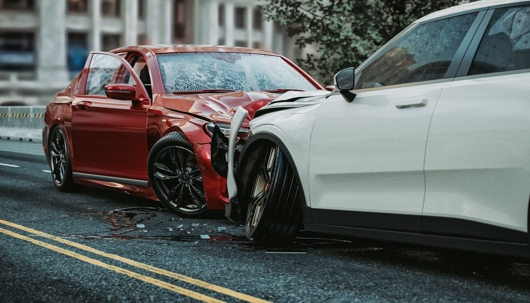Leaving the scene of an accident—even when there’s no injury—can still lead to criminal charges in Florida. Many drivers are surprised to learn that even minor fender benders can result in a second-degree misdemeanor, carrying the risk of jail, fines, and a criminal record.
In this blog, we’ll focus on the misdemeanor version of leaving the scene of an accident involving property damage only, explain what the law requires, and break down why restitution typically cannot be ordered in these cases under Florida law.
What Is Leaving the Scene of an Accident of an Accident?
Under Florida Statutes § 316.061, it is a criminal offense to leave the scene of a crash when:
- The accident caused damage to another vehicle or property,
- No injury or death occurred, and
- The driver fails to stop and exchange information as required by law.
The law mandates that the driver must:
- Immediately stop at or near the scene of the crash, and
- Provide their name, address, and vehicle registration information to the other party or law enforcement.
Failure to do so is a second-degree misdemeanor in Florida.
Penalties for Misdemeanor Leaving the Scene of an Accident
If convicted, the penalties can include:
- Up to 60 days in jail
- Up to 6 months of probation
- Up to $500 in fines
- Points on your driving record
- Possible driver’s license suspension (in some cases)
- A permanent criminal record
Even though this is a misdemeanor, it is a criminal charge, not just a traffic citation.
Why Restitution Cannot Be Ordered in These Cases
You might assume the court will order you to pay for the property damage as part of sentencing. However, Florida law does not allow restitution in misdemeanor “leaving the scene” cases when the only loss is property damage from the accident itself.
Here’s why:
1. The Crime Is Leaving—Not Causing the Accident
In a § 316.061 case, the act of fleeing is the offense—not the accident or property damage itself. If the damage occurred before the driver left, then the loss was not caused by the criminal act of leaving.
2. Restitution Requires a Direct Link Between the Crime and the Loss
Florida courts have consistently ruled that restitution can only be ordered when the loss results directly from the criminal conduct. In property-only hit-and-run cases, the conduct (leaving the scene) typically does not cause new or additional damage.
3. Victims Still Have Civil Remedies
While restitution is not available in these cases, the other driver can still:
- File an insurance claim
But these remedies occur outside the criminal court system.
Case Example: No Restitution for Property Damage
For example, in State v. Williams, the Florida Supreme Court ruled that restitution could not be imposed for damages arising from the accident itself, as those damages were not caused by the act of leaving the scene State v. Williams, 520 So. 2d 276. Similarly, in Triplett v. State, the court emphasized that restitution is only appropriate if the act of leaving the scene exacerbated the damages, which was not the case in that instance Triplett v. State, 709 So. 2d 107.

